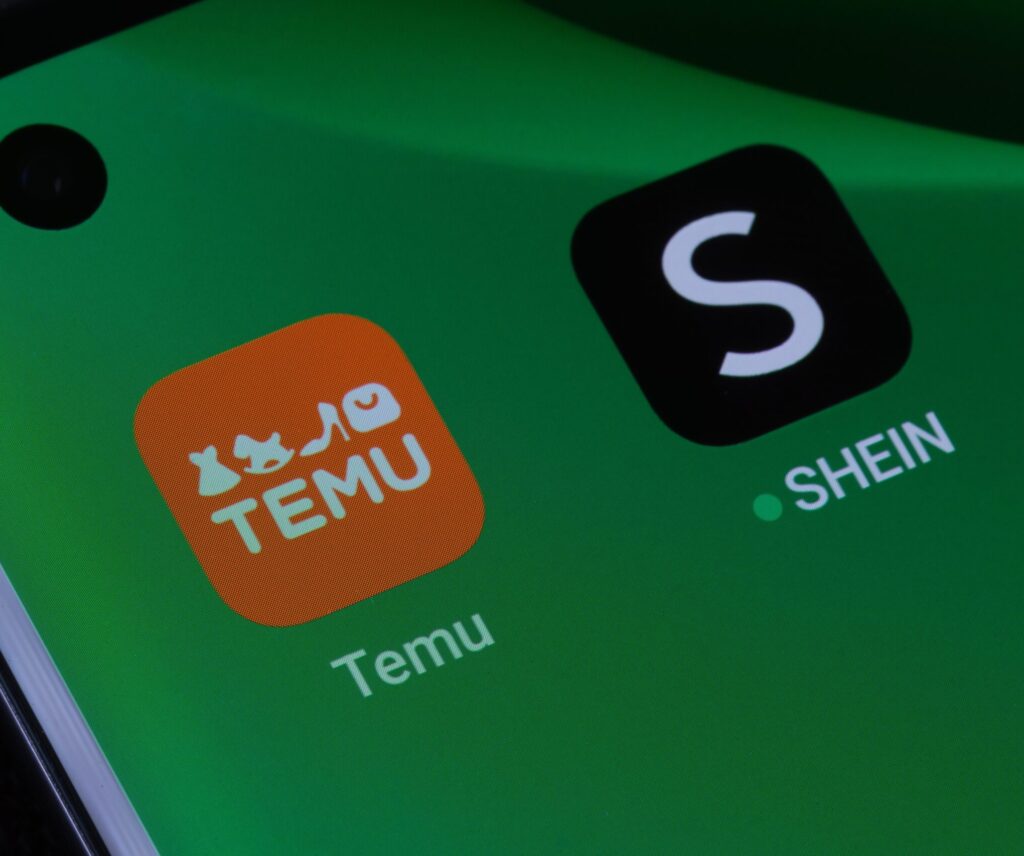Temu vs Shein: A Deep Dive into the World of Affordable Fashion
Two names in online shopping have become prominent: Temu and Shein. Both platforms cater to the budget-conscious consumer, offering a vast range of products at incredibly low prices. However, while they may seem similar at first glance, there are notable differences between these two fast fashion giants that can influence your shopping experience. In this article, we’ll explore Temu and Shein’s key aspects to help you decide which platform is best suited for your needs.
The Temu and Shein Phenomenon
Both platforms have gained massive followings thanks to their ability to offer trendy items at unbeatable prices. However, the way they operate and the products they provide can have a direct impact on your shopping experience. Shein’s user-friendly interface and intuitive search options make it easy to find and purchase trendy items, while Temu’s marketplace model offers a more diverse shopping experience, allowing you to explore a wide variety of products from different sellers.
Business Models: Marketplace vs. Fast Fashion
One of the primary differences between Temu and Shein lies in their business models. Shein is a fast fashion brand that produces trendy clothing and accessories at breakneck speed. The company’s success is largely built on its ability to quickly turn runway trends into affordable pieces available to the masses. This rapid production cycle means Shein constantly updates its catalog with the latest fashion trends, making it a go-to platform for style-conscious shoppers looking for the latest looks without breaking the bank.
Temu, on the other hand, operates as a marketplace rather than a direct seller. This platform connects buyers with various sellers who offer a diverse range of products, from fashion to electronics, home goods, and beauty items. Temu’s marketplace model, with its wide variety of products, offers a convenient and versatile shopping experience, making it a great option for shoppers seeking more than just fashion.
Product Range: Fashion vs. Variety
When it comes to product range, Shein is predominantly focused on fashion. The platform is particularly popular for women’s clothing but offers men’s and children’s apparel, accessories, and beauty products. Shein is known for its extensive selection of trendy outfits, catering to a broad audience, from casual shoppers to fashionistas seeking the latest looks.
Temu, on the other hand, takes a broader approach. While it does offer fashion items, the platform’s product range extends far beyond clothing. Temu features a wide variety of categories, including electronics, home decor, beauty, health, and even automotive products. This diverse range of products in Temu can excite shoppers who are looking for more than just apparel.
Pricing: Competitive Bargains
Both Temu and Shein are known for their competitive pricing, making them attractive options for budget-conscious shoppers. This competitive pricing empowers shoppers to make the most of their budget, regardless of the platform they choose.
Shein’s pricing strategy is offering trendy fashion items at remarkably low prices. The brand often features flash sales, discounts, and promotions, making it easy for shoppers to score great deals on stylish clothing. However, due to its fast fashion model, some items may come at the expense of quality, and shoppers should be mindful of this when making purchases.
Temu, being a marketplace, often features even lower prices than Shein. Because it connects buyers with a range of sellers, there is room for competitive pricing among vendors. This can lead to significant savings, especially on items outside the fashion category. Temu’s marketplace model allows for price comparisons between sellers, enabling shoppers to find the best deals on various products.
Quality: The Gamble of Budget Shopping
When shopping on either platform, it’s essential to understand that quality can be hit or miss. Shein and Temu have faced criticism for offering low-quality products, with some customers receiving items that must match their expectations. This is a common concern with fast fashion and budget marketplaces, as low prices often correlate with lower-quality materials and construction.
As a fast fashion brand, Shein has a reputation for producing clothing that may last less time than those of higher-end brands. Some shoppers have reported issues with sizing, fabric quality, and durability. However, there are also plenty of positive reviews from customers who have found great value in Shein’s offerings, especially for trendy, season-specific items that don’t require long-term wear.
Temu’s quality can vary even more due to its marketplace model. Since Temu connects buyers with different sellers, the quality of products can differ from one vendor to another. While some sellers offer high-quality goods at low prices, others may provide items that fall short of expectations. It’s crucial for shoppers to carefully read reviews and product descriptions on Temu to ensure they’re making informed purchases.
Shipping and Returns: Policies Matter
Shipping and return policies are critical when choosing between Temu and Shein. Both platforms offer free shipping options, but the specifics can differ.
Shein typically provides free shipping on orders that meet a minimum purchase amount. The platform also offers express shipping options for an additional fee. Shein’s return policy is relatively straightforward, allowing customers to return items within a set period for a refund or exchange. However, customers should note that some items, such as underwear and beauty products, may need to be more present.
Temu’s shipping and return policies can vary depending on the seller. As a marketplace, Temu connects buyers with multiple vendors, each of which may have its own shipping and return terms. Some sellers in Temu offer free shipping, while others may charge for it. Similarly, return policies can differ, so shoppers should review the terms before purchasing. The variability in these policies means that shopping in Temu may require more diligence than in Shein.

Sustainability: The Environmental Impact of Fast Fashion
Both Temu and Shein have faced scrutiny for their environmental impact, particularly in the context of fast fashion. The fast fashion industry, in general, is notorious for its environmental footprint, with issues ranging from textile waste to excessive water usage and carbon emissions. Shein, as a fast fashion brand, is no exception. The company’s rapid production cycles and focus on affordability contribute to the throwaway culture associated with fast fashion, where items are often worn a few times before being discarded. On the other hand, Temu’s marketplace model allows for more sustainable shopping, as it promotes the reuse of products and supports smaller sellers. However, it’s important to note that the ethical practices of individual sellers on Temu may vary.
Temu, while not solely a fashion platform, still needs challenges in terms of sustainability. As a marketplace, Temu connects buyers with sellers who may or may not prioritize eco-friendly practices. The platform does not have direct control over the production processes of the items sold, making it harder to ensure sustainability across the board.
Neither platform is an ideal choice for eco-conscious shoppers if sustainability is a top priority. However, some buyers may find ways to shop more responsibly by choosing products made from sustainable materials or supporting sellers with ethical business practices.
Labor Practices: Ethical Concerns
Another critical concern surrounding both Temu and Shein is their labor practices. Fast fashion brands, in particular, have been criticized for relying on low-cost labor in countries with less stringent labor laws. Shein has faced allegations of poor working conditions and low wages in its supply chain, raising questions about the ethics behind its low-priced fashion.
Temu, as a marketplace, connects buyers with sellers from around the world, which means that labor practices can vary widely depending on the vendor. Some sellers may prioritize ethical production, while others may not. This lack of consistency makes it challenging for shoppers to know the true labor practices behind the products they purchase on Temu.
Shoppers concerned about labor practices should research individual sellers on Temu or consider alternative platforms prioritizing ethical production.
The Verdict: Which Platform is Right for You?
Ultimately, the choice between Temu and Shein comes down to your preferences and shopping needs. If you’re primarily interested in trendy, affordable fashion and want a wide selection of clothing, Shein may be your better option. The platform’s focus on fashion and frequent discounts make it a popular choice for style-conscious shoppers on a budget.
On the other hand, if you’re looking for a broader range of products beyond fashion, Temu’s marketplace model offers more variety. Temu provides a wider selection of items, from electronics to home goods, at competitive prices. However, due to the variability in quality and shipping policies, shopping in Temu may require more research and caution.
Conclusion
Both platforms have strengths and weaknesses in the “Temu vs Shein“ debate. Shein excels in delivering trendy fashion at low prices, but its fast fashion model raises concerns about quality, sustainability, and labor practices. Temu offers a more diverse product range at competitive prices, but its marketplace structure can lead to consistency in product quality and shipping experiences.
Before deciding, consider what matters most to you as a shopper. Whether it’s fashion, variety, price, or ethics, both Temu and Shein offer distinct advantages depending on your priorities



